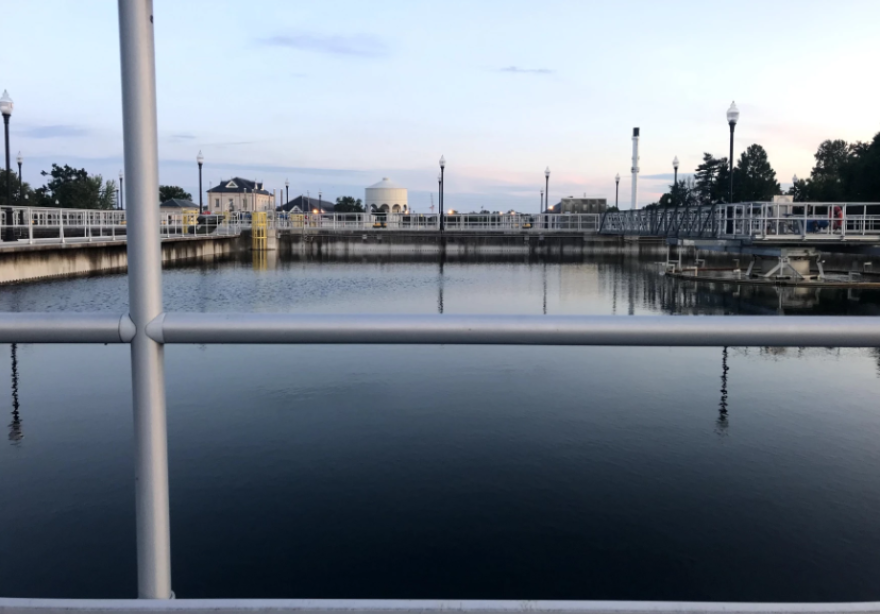State lawmakers could soon remove a mandate that requires the chemical fluoride to be added to Kentucky’s water supply — despite warnings from dental professionals.
In Kentucky, state regulations require water systems that serve more than 3,000 people to add fluoride to the water to help protect residents’ dental health.
Some state lawmakers are pushing a measure that would make water fluoridation optional in Kentucky. They say the current requirement is “forced medication,” they claim fluoridated water poses a range of health risks and it’s costly.
But interviews with officials at some of the state’s largest water suppliers show the price of adding fluoride to water is low and dental professionals say it’s an easy cost to bear to help prevent tooth decay.
Dental health is important, especially in Kentucky, where the number of people with oral cancer and tooth extractions is high and the number of people who regularly visit the dentist is low.
Presently, nearly all of Kentucky’s community water systems are fluoridated, according to a letter from the Kentucky Dental Association filed in opposition of House Bill 141, the measure that would make water fluoridation optional. The measure passed a House committee earlier this month.
“Compared to the cost of other prevention programs, water fluoridation is the most cost-effective means of preventing tooth decay for children and adults in the United States,” the letter states. “The cost of a lifetime of water fluoridation for one person is less than the cost of one filling.”
So, how much does it cost to fluoridate water in Kentucky?
The Louisville Water Company, which serves nearly a million people in Jefferson and parts of the surrounding six counties, spends about $284,000 each year to bolster the naturally occurring fluoride that comes from the Ohio River, according to Kelley Dearing Smith, the company’s spokesperson. The company adds .3 to .4 parts per million of fluoride to reach the required range of fluoride (between .6 and 1.2 parts per million).
The water company’s annual operating budget is $112 million.
The company co-signed a letter opposing HB141, along with the Kentucky Dental Association, the Kentucky Dental Hygienists’ Association, the Kentucky Oral Health Coalition, the Kentucky Primary Care Association and Delta Dental of Kentucky.
If the measure does become law, it leaves the decision to fluoridate up to a water system’s governing body. In Louisville, the water company is governed by a board of directors.
And even if the board decided to end Louisville’s fluoridation program, Dearing Smith said the water company doesn’t have the ability to remove the naturally occurring fluoride in the system’s water supply — the Ohio River.
Kentucky American Water, which serves residents in Lexington and parts of several surrounding counties, estimates that the company will spend over $120,000 in bulk fluoride costs over the next 12 months, said Susan Lancho, the company’s senior manager of external communications.
Northern Kentucky Water District, which serves about 300,000 people in Kenton, Campbell and surrounding counties, spent about $98,000 on fluoridation in 2023, which is about 4% of their overall chemical budget of about $2.5 million, said Sara Sgantas, the district’s communications and public outreach manager.
Paducah Water, which covers Paducah and a few surrounding areas, spent $71,400 on fluoride in 2023. The provider treats about 7.5 million gallons a day which means they spend about $200 a day on fluoride treatments, said Jason Peterson, general manager.
Bowling Green Municipal Utilities, which provides water to the Warren County Water District, spent $69,000 on fluoride last fiscal year, said Doug Kimbler, treatment plant superintendent.
Hopkinsville Water Environmental Agency spent $24,580 on fluoride in 2023, about 6% of the provider’s overall chemical costs, said Derrick Watson, president and CEO.
And in Martin County, with a population of about 11,000 people, the water utility board reported spending just more than $14,000 on fluoride in 2023, according to a letter filed in support of HB141.
Local control
There are filters available that can remove fluoride from tap water, said Jennifer Hasch Harrison, a dental hygienist, researcher with the University of Kentucky School of Dentistry and volunteer with the Free Smiles Clinic in Louisville.
But she doesn’t see the need for it.
“We know that the truth of the matter is that fluoride is safe and effective and necessary based on science and research,” she said.
Other dental professionals agree.
In the letter filed in opposition of HB141, the Kentucky Dental Association said that community water fluoridation can reduce cavities by at least 25%.
“Additionally, an analysis of Medicaid claims in three states found that children living in fluoridated communities had lower treatment costs related to tooth decay than did similar children living in nonfluoridated communities,” the letter stated.
To many lawmakers supporting the measure, however, the importance of local control outweigh the health benefits and low costs.
At the meeting of the House of Representatives committee on state government, where HB141 passed on a vote of 16-1, Rep. John Hodgson, a Republican from Fisherville, said he’s concerned about the government forcing people to do something they don’t want.
“I actually spend extra money to filter the fluoride out of my water,” he said. “So, there’s a cost to having fluoride in the water for people, as well.”


